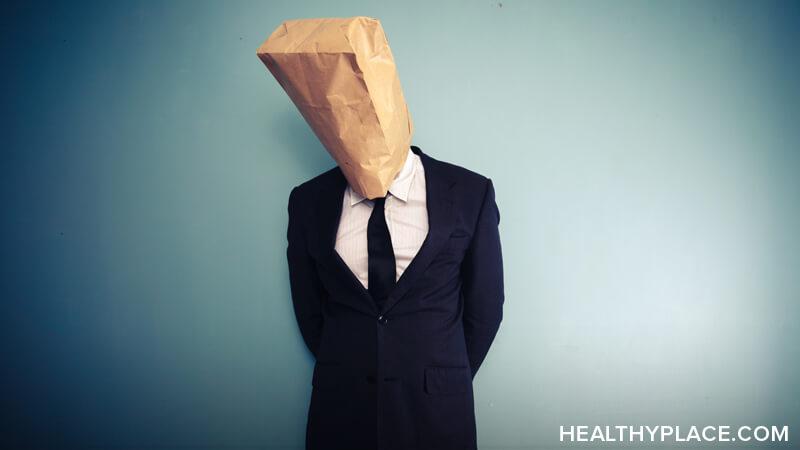Social Rejection Makes Me Hide Part of Myself

Social rejection hurts me much more than I would like. I'm sensitive, and therefore I experience all emotions to a greater a degree. Everything from joy to depression can sometimes be overwhelming. And it's that tendency to experience emotions so strongly that keeps me from revealing parts of myself that I've labeled "unlovable."
Let me explain.
Although ostracism and social rejection are painful for most people, for someone like myself with attention-deficit/hyperactivity disorder (ADHD), social rejection is scarring. And the fear of being socially rejected keeps me from letting people into my home because of the clutter, or letting people ride in my car because of how messy it is. (Empty water bottles, anyone?)
There are parts of myself that I often mask or hide from the world, and I've perfected this outward projection over many years.
Fear of Social Rejection May Be a Symptom of ADHD
Perhaps rejection sensitivity dysphoria (RSD) is to blame here, but the discomfort of not being liked, initially, is pretty heavy for me. So hiding the not-so-great aspects of myself serves almost as a defense mechanism. I'm one of those people who prefer not to rock the boat, and I tend to shy away from confrontation.
So when someone doesn't like me, I spend a lot of time in my head internalizing why, what I could've done, and ways I could possibly make things better. Eventually, to minimize the discomfort, I find all the reasons why the other person sucks and, ironically, begin to dislike them back. But it's not long before I come to terms with the idea that I'm just not everyone's cup of tea—and that's okay.
What I've Learned Because of My Fear of Social Rejection
What I've learned after years of polishing and protecting aspects of my personality is:
- How to coach myself through the discomfort of social rejection
- How to accept the unpolished version of myself
- How to shift my focus on the people who do love me, all of me
I'll be sharing these hard-learned lessons in the video down below. And if you've ever struggled with social rejection, what are some ways you've gotten through it? Share you thoughts and comments in the comment section below.
APA Reference
Ansah, T.
(2020, July 15). Social Rejection Makes Me Hide Part of Myself, HealthyPlace. Retrieved
on 2025, December 13 from https://www.healthyplace.com/blogs/livingwithadultadhd/2020/7/social-rejection-makes-me-hide-part-of-myself
Author: Tonie Ansah
Hi Tonie. Thank you so much for all the articles written about your experience. I was diagnosed with ADHD (moderate to severe and combination subtypes) when I was in my early 20s and have super struggled with all the things you talked about in this video and blog post. I so appreciate you opening up about your experience because I relate on so many levels (especially the unmasking). It’s so hard to understand that I’m a beautiful person deserving of love and affection because of my ADHD but that your video is as so encouraging for me to find people in my life who love and care about me. Thank you!!!
It is the first article I read about it, it makes me feel a little less alone at this moment that I feel down because I have had bad moments at work and when I want to fit in with people. So please keep posting videos like this!
Thank you for bravely sharing this! I particularly love the parts at the end where you talk about what you've learned from this. I think it's wonderful how you learned to "coach" yourself, and shifting your perspective to focus on those who truly love all of you and the "unpolished" version of yourself. I think this is advice that everyone can relate to and benefit from, we all need these reminders some times.
Thanks for the sweet comment Lizanne. It's tough work but learning to be my own best friend, especially in times of discomfort, has served my mental health well. Thanks for reading!
-Tonie